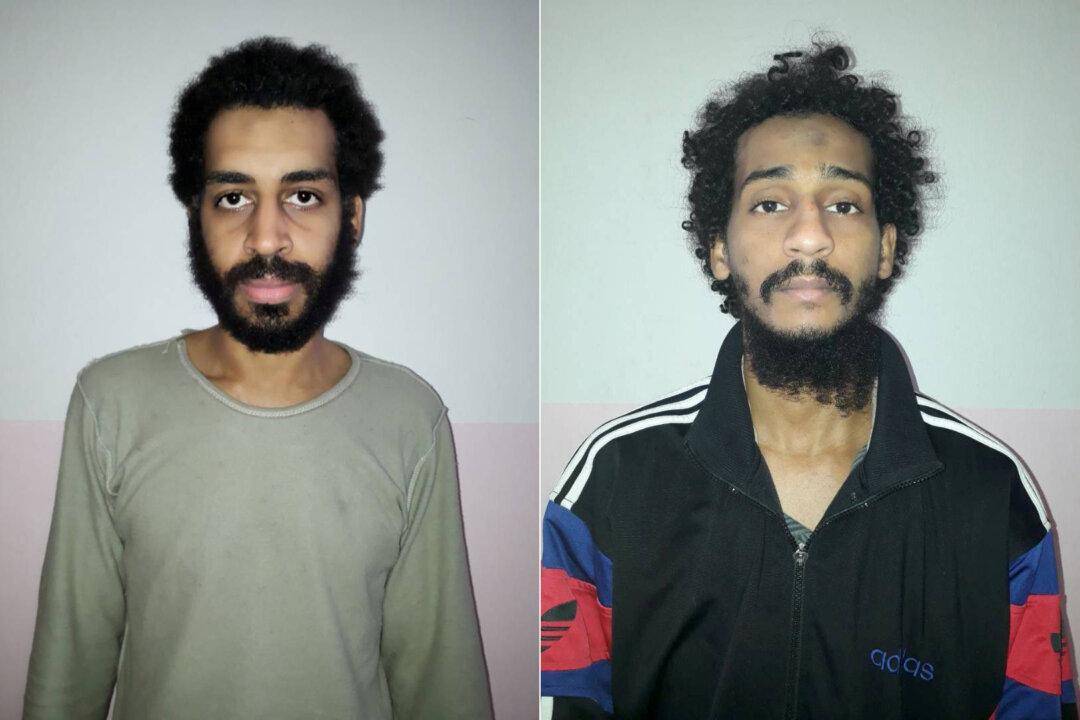LONDON—The UK government has cleared the way for two members of the British “Beatles” ISIS terror cell to face trial in the United States for their roles in kidnapping, terrorism, and murder in Syria.
In a leaked letter, the UK interior minister appeared to blur the government’s official opposition to the death penalty, agreeing to pass on evidence from UK counterterrorism investigations.





